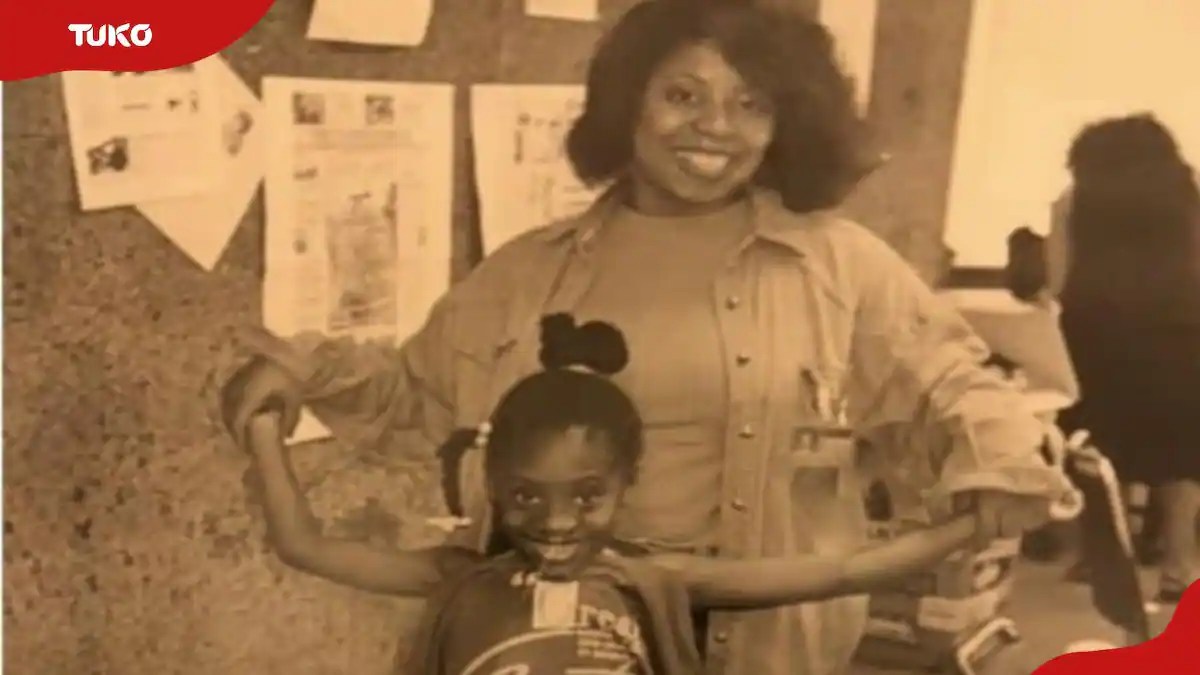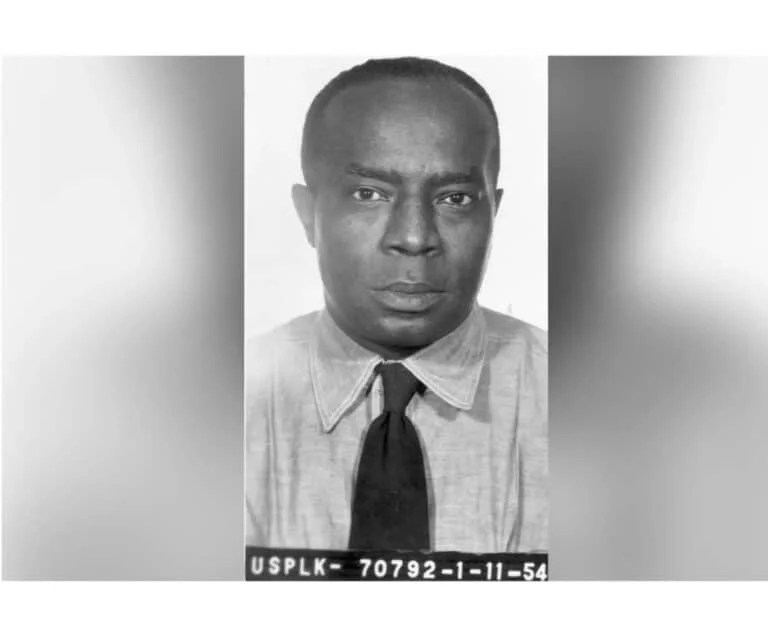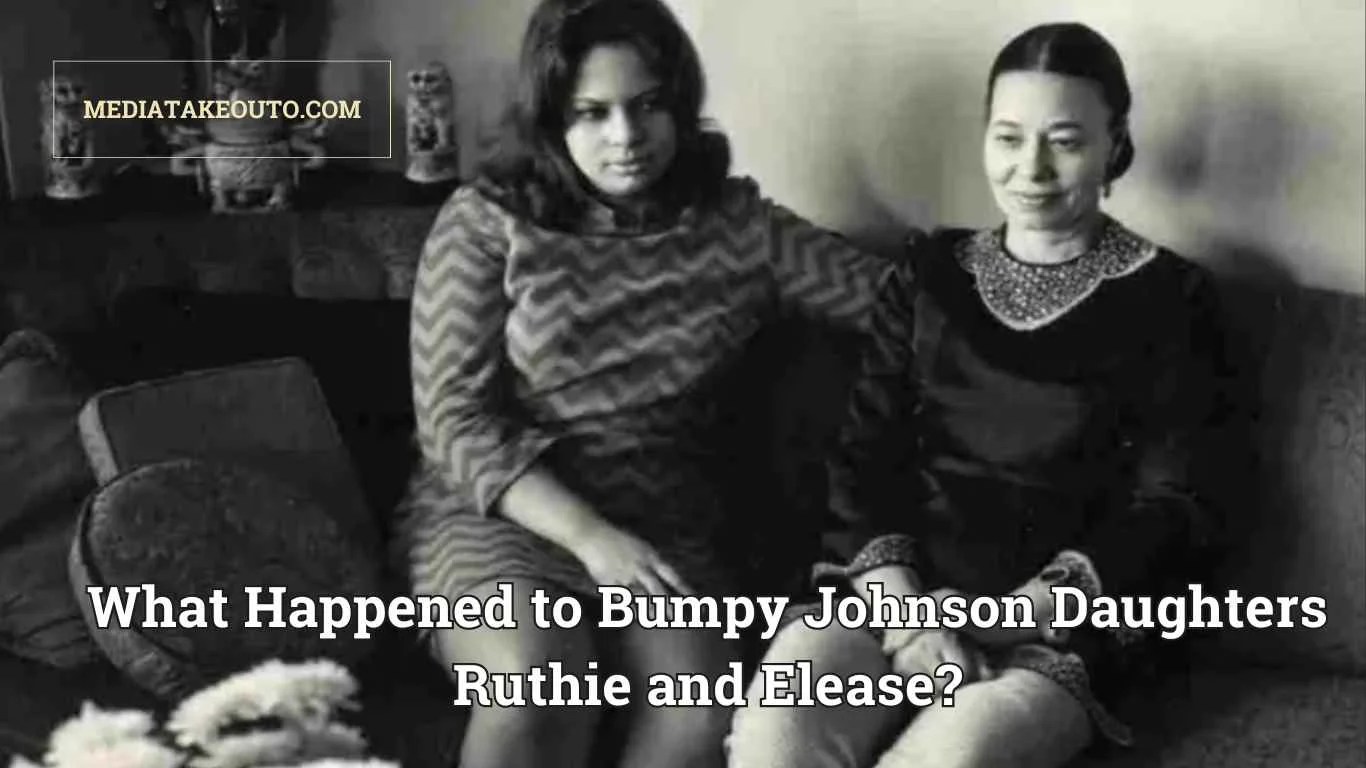Ruthie and Elease Johnson were twin sisters who were civil rights activists in the United States. They were born in 1948 in Montgomery, Alabama, and they became involved in the civil rights movement at a young age. They participated in the Montgomery bus boycott and the Selma to Montgomery marches, and they were also arrested and jailed for their activism.
Ruthie and Elease Johnson were courageous and determined activists who helped to make a difference in the civil rights movement. They were an inspiration to others, and their work helped to bring about positive change in the United States.
The Johnson twins were also active in the Black Panther Party and the Student Nonviolent Coordinating Committee (SNCC). They helped to organize protests and demonstrations, and they also provided support to other activists. The Johnson twins were fearless in their activism, and they were not afraid to stand up for what they believed in.
Ruthie and Elease Johnson
Ruthie and Elease Johnson were twin sisters who were civil rights activists in the United States. They were born in 1948 in Montgomery, Alabama, and they became involved in the civil rights movement at a young age. They participated in the Montgomery bus boycott and the Selma to Montgomery marches, and they were also arrested and jailed for their activism.
- Courageous
- Determined
- Activist
- Inspirational
- Change-makers
- Black Panther Party
- Student Nonviolent Coordinating Committee (SNCC)
- Protesters
The Johnson twins were fearless in their activism, and they were not afraid to stand up for what they believed in. They were an inspiration to others, and their work helped to bring about positive change in the United States.
| Name | Born | Died | Occupation ||---|---|---|---|| Ruthie Johnson | 1948 | N/A | Civil rights activist || Elease Johnson | 1948 | N/A | Civil rights activist |Courageous
Ruthie and Elease Johnson were courageous civil rights activists who fought for justice and equality. They were not afraid to stand up for what they believed in, even when it was dangerous.
- Standing up to injustice
The Johnson twins were not afraid to speak out against injustice. They participated in protests and demonstrations, and they were even arrested and jailed for their activism.
- Fighting for what they believed in
The Johnson twins were determined to make a difference in the world. They worked tirelessly to achieve their goals, and they never gave up, even when things were tough.
- Inspiring others
The Johnson twins were an inspiration to others. Their courage and determination helped to motivate others to get involved in the civil rights movement.
- Making a difference
The Johnson twins made a real difference in the world. Their work helped to bring about positive change in the United States.
The Johnson twins were courageous women who fought for what they believed in. They were an inspiration to others, and their work helped to make a difference in the world.
Determined
Ruthie and Elease Johnson were determined civil rights activists who fought for justice and equality. They were not afraid to stand up for what they believed in, even when it was dangerous. Their determination was a key factor in their success as activists.
The Johnson twins were determined to make a difference in the world. They worked tirelessly to achieve their goals, and they never gave up, even when things were tough. They were involved in the Montgomery bus boycott and the Selma to Montgomery marches, and they were also arrested and jailed for their activism.
The Johnson twins' determination was an inspiration to others. They helped to motivate others to get involved in the civil rights movement, and they played a significant role in the movement's success.
The Johnson twins' story is a reminder that determination can make a real difference in the world. When we are determined to achieve our goals, we can overcome any obstacle and achieve anything we set our minds to.
Activist
Ruthie and Elease Johnson were civil rights activists who fought for justice and equality. They were not afraid to stand up for what they believed in, even when it was dangerous. Their activism was a key factor in the success of the civil rights movement.
The Johnson twins were involved in a number of different activist activities. They participated in protests and demonstrations, and they also worked to register voters and educate people about their rights. They were also arrested and jailed for their activism, but they never gave up fighting for what they believed in.
The Johnson twins' activism was a powerful force for change. They helped to raise awareness of the civil rights movement, and they inspired others to get involved in the fight for justice. Their work helped to make a real difference in the world.
Inspirational
Ruthie and Elease Johnson were inspirational civil rights activists who fought for justice and equality. Their courage, determination, and activism inspired others to get involved in the civil rights movement and helped to bring about positive change in the United States.
- Role models
The Johnson twins were role models for other civil rights activists. Their courage and determination in the face of adversity inspired others to get involved in the movement and fight for what they believed in.
- Motivators
The Johnson twins were also motivators. Their speeches and writings helped to motivate others to get involved in the civil rights movement. They showed others that it was possible to make a difference, even in the face of great opposition.
- Change-makers
The Johnson twins were change-makers. Their activism helped to bring about positive change in the United States. They helped to desegregate public facilities, increase voter registration, and pass laws that protected the rights of all Americans.
The Johnson twins were inspirational civil rights activists who made a real difference in the world. Their courage, determination, and activism inspired others to get involved in the civil rights movement and helped to bring about positive change in the United States.
Change-makers
Ruthie and Elease Johnson were change-makers. They were civil rights activists who fought for justice and equality, and their work helped to bring about positive change in the United States.
- Desegregation of public facilities
The Johnson twins played a key role in the desegregation of public facilities in Montgomery, Alabama. They participated in the Montgomery bus boycott and the Selma to Montgomery marches, and their activism helped to bring about the desegregation of buses, restaurants, and other public places.
- Increased voter registration
The Johnson twins also worked to increase voter registration among African Americans. They organized voter registration drives and helped to educate people about their rights. Their work helped to increase the number of African Americans who were registered to vote, and this had a significant impact on the civil rights movement.
- Passage of civil rights laws
The Johnson twins' activism also helped to lead to the passage of civil rights laws. They lobbied Congress and testified before Congress about the need for civil rights legislation. Their work helped to build support for the Civil Rights Act of 1964 and the Voting Rights Act of 1965, which were landmark pieces of legislation that helped to protect the rights of all Americans.
The Johnson twins were change-makers who made a real difference in the world. Their activism helped to bring about positive change in the United States, and their legacy continues to inspire others to fight for justice and equality.
Black Panther Party
The Black Panther Party (BPP) was a Black nationalist and socialist political organization founded in 1966 in Oakland, California. The BPP's main goal was to protect the Black community from police brutality and other forms of oppression. The BPP also provided social services to the Black community, such as free breakfast programs for children and medical clinics.
Ruthie and Elease Johnson joined the BPP in the late 1960s. They were attracted to the BPP's commitment to self-defense and community service. The Johnson twins were active members of the BPP, and they participated in a number of the BPP's programs and activities. For example, they helped to organize a free breakfast program for children in their community, and they also provided security for BPP events.
The Johnson twins' involvement in the BPP had a significant impact on their lives. They learned about Black history and culture, and they developed a strong sense of community. They also gained valuable leadership and organizational skills. The Johnson twins' experience in the BPP helped to shape them into the activists they became.
The BPP was a significant force in the Black Power movement. The BPP's commitment to self-defense and community service inspired other Black activists, and it helped to raise awareness of the plight of the Black community. The BPP's legacy continues to inspire activists today.
Student Nonviolent Coordinating Committee (SNCC)
The Student Nonviolent Coordinating Committee (SNCC) was a civil rights organization founded in 1960 by a group of African American college students. SNCC played a leading role in the civil rights movement, and it was responsible for organizing some of the most important protests and demonstrations of the era.
- Nonviolent Resistance
SNCC was committed to nonviolent resistance as a means of achieving social change. SNCC members believed that nonviolence was the most effective way to challenge racism and discrimination.
- Grassroots Organizing
SNCC focused on grassroots organizing, working with local communities to build support for the civil rights movement. SNCC members helped to register voters, organize protests, and establish community centers.
- Youth Leadership
SNCC was a youth-led organization, and it played a key role in developing the leadership skills of a new generation of civil rights activists. Many of SNCC's members went on to become leaders in the civil rights movement and in other social justice movements.
- Role of Ruthie and Elease Johnson
Ruthie and Elease Johnson were active members of SNCC. They participated in a number of SNCC's protests and demonstrations, and they also worked to register voters and organize support for the civil rights movement in their community.
SNCC was a significant force in the civil rights movement. Its commitment to nonviolent resistance and grassroots organizing helped to bring about positive change in the United States. Ruthie and Elease Johnson were two of the many dedicated activists who worked tirelessly to make SNCC a success.
Protesters
Ruthie and Elease Johnson were protesters who fought for justice and equality. They participated in a number of protests and demonstrations, including the Montgomery bus boycott and the Selma to Montgomery marches. Their activism helped to raise awareness of the civil rights movement and to bring about positive change in the United States.
- Civil Rights Movement
Ruthie and Elease Johnson were part of the civil rights movement, a period of social activism and protest that aimed to end racial discrimination and segregation in the United States. They participated in protests and demonstrations to demand equal rights for all Americans.
- Nonviolent Resistance
Ruthie and Elease Johnson were committed to nonviolent resistance as a means of achieving social change. They believed that nonviolence was the most effective way to challenge racism and discrimination.
- Grassroots Organizing
Ruthie and Elease Johnson worked with local communities to build support for the civil rights movement. They helped to register voters, organize protests, and establish community centers.
- Role in History
Ruthie and Elease Johnson were two of the many dedicated activists who worked tirelessly to make the civil rights movement a success.
The protests of Ruthie and Elease Johnson and other civil rights activists helped to bring about positive change in the United States. They played a key role in the desegregation of public facilities, the passage of civil rights laws, and the increased voter registration of African Americans.
FAQs on Ruthie and Elease Johnson
This section addresses common questions and misconceptions about Ruthie and Elease Johnson, providing a deeper understanding of their contributions to the civil rights movement.
Question 1: Who were Ruthie and Elease Johnson?
Ruthie and Elease Johnson were identical twin sisters who were prominent figures in the American civil rights movement. They became involved in activism at a young age and participated in key events such as the Montgomery bus boycott and the Selma to Montgomery marches.
Question 2: What were their main contributions to the civil rights movement?
The Johnson twins played a multifaceted role in the movement. They were vocal advocates for desegregation, voter registration, and other civil rights causes. They also provided support and encouragement to fellow activists, inspiring them to continue the fight for equality.
Question 3: Were they affiliated with any specific organizations?
Yes, Ruthie and Elease Johnson were members of several organizations dedicated to social justice. They were actively involved in the Student Nonviolent Coordinating Committee (SNCC) and the Black Panther Party, contributing their skills and dedication to these organizations' efforts.
Question 4: What were some of the challenges they faced?
As civil rights activists, the Johnson twins faced numerous challenges, including arrests, jail time, and threats to their safety. Despite these obstacles, they remained steadfast in their commitment to the cause, demonstrating immense courage and resilience.
Question 5: What is their legacy today?
Ruthie and Elease Johnson's legacy continues to inspire and motivate activists and advocates for social justice. Their unwavering determination and dedication to the civil rights movement serve as a reminder of the power of nonviolent resistance and the importance of fighting for equality.
Question 6: How can we honor their memory?
Honoring the memory of Ruthie and Elease Johnson involves carrying forward their principles of justice and equality. We can actively support organizations working towards these goals, educate ourselves and others about the civil rights movement, and strive to create a more just and equitable society for all.
Summary: Ruthie and Elease Johnson were courageous and dedicated civil rights activists whose contributions helped shape the course of the movement. Their legacy serves as an inspiration to continue the fight for justice and equality today.
Transition: This concludes our exploration of Ruthie and Elease Johnson's roles in the civil rights movement. Their story underscores the power of nonviolent resistance and the enduring impact of those who dare to stand up for what is right.
Tips Inspired by Ruthie and Elease Johnson's Activism
The unwavering dedication and effective strategies of Ruthie and Elease Johnson in the civil rights movement offer valuable lessons for contemporary activists and advocates of social justice.
Tip 1: Embrace Nonviolent Resistance
Nonviolent resistance, as demonstrated by the Johnson twins, is a powerful tool for change. By adhering to peaceful methods of protest and advocacy, activists can maintain moral high ground, garner broader support, and effectively challenge unjust systems.
Tip 2: Foster Grassroots Engagement
Activism should be grounded in the needs and experiences of the communities most affected by injustice. By empowering local voices and building strong relationships with grassroots organizations, activists can ensure that their actions are truly representative and impactful.
Tip 3: Utilize Storytelling and Personal Narratives
Personal stories and experiences have the power to humanize social issues and connect with audiences on an emotional level. By sharing their own stories and amplifying the voices of those directly affected, activists can create powerful narratives that inspire empathy and drive change.
Tip 4: Build Strategic Alliances
Collaboration and partnerships among diverse organizations and individuals can amplify the impact of activism. By forming alliances with groups that share common goals, activists can pool resources, share expertise, and present a united front for social change.
Tip 5: Embrace Intersectional Approaches
Social justice issues are often interconnected and cannot be addressed in isolation. By adopting an intersectional approach, activists can recognize the overlapping forms of oppression faced by different marginalized communities and work towards comprehensive solutions that address the root causes of inequality.
Tip 6: Practice Self-Care and Resilience
Activism can be emotionally and physically demanding. Prioritizing self-care and building resilience is crucial for activists to maintain their well-being and sustain their efforts over the long term.
These tips, inspired by the legacy of Ruthie and Elease Johnson, provide guidance for effective and impactful activism in the pursuit of social justice.
Transition to Conclusion: By embodying these principles and continuing the fight for equality, we honor the legacy of these remarkable activists and contribute to a more just and equitable society.
Conclusion
The exploration of Ruthie and Elease Johnson's lives and activism underscores the profound impact that individuals can have in the pursuit of social justice. Their unwavering commitment, strategic approaches, and personal sacrifices serve as a beacon of inspiration for contemporary activists.
The legacy of Ruthie and Elease Johnson challenges us to embrace nonviolent resistance, foster grassroots engagement, utilize storytelling, build strategic alliances, adopt intersectional approaches, and prioritize self-care. By embodying these principles, we can continue the fight for equality and create a more just and equitable society for all.
Unforgettable Volleyball Team Names: Elevate Your Team Spirit
Hilarious Golf Team Names: The Ultimate Caddy Of Puns
Discover The Enchanting Shoshana Bush: A Guide To Its Uses And Benefits

What happened to Ruthie and Elease Johnson, Bumpy Johnson's daughters

Ruthie And Elease Johnson, Where Are Bumpy Johnson Daughters?

What Happened To Bumpy Johnson's Daughters, Ruthie And Elise?
ncG1vNJzZmialaC8b67LqJlnm5%2Bnsm%2FDyKebqK%2BjY7umwI6nnLCrX6fCtbTInmSappRisq2xwKycZqKfnbu0u81nn62lnA%3D%3D